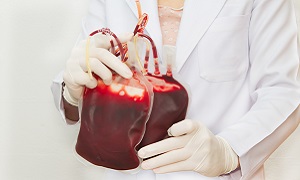Best Lymphoma Treatment Doctors in India
Best Lymphoma Treatment Hospitals in India
Hospital Highlights:
- Apollo Hospitals is a private healthcare group in India, with its headquarters based in Chennai. Established in 1983 by Dr. Prathap C. Reddy, the group offers a wide range of medical treatments and services across various specialties.
- It is renowned for emphasizing innovation and utilizing cutting-edge medical technologies into patient treatment.
- Known as India’s first corporate hospital, Apollo Hospitals is often credited for pioneering the private healthcare revolution in the country.
- With clinics and hospitals located all throughout India, Apollo Hospitals is a nationwide healthcare organization. Its presence can also be found in foreign countries.
- Preventive health examinations, medical and surgical treatment, and diagnostic centres are just a few of the services that the Apollo group provides.
- The group has several centres of expertise, including Cardiac Sciences, Neurosciences, Orthopedics, Emergency Care, Cancer Care, and Organ Transplantation.
- City: Chennai, India
Hospital Highlights:
- RIMC is a multi-specialty hospital in a sprawling area of 36 acres located in Chromepet, Chennai, Tamil Nadu, India.
- The facility has 450 beds including 130 critical care beds, 9 operating rooms, modern reference laboratories and radiology services, and is conveniently located near road, rail and air transportation.
- RIMC is led and managed by world-renowned physicians committed to healthcare.
- RIMC offers the broadest range of clinical care, education, and research. The hospital offers state-of-the-art technology and modern treatment facilities designed to provide health care at an affordable cost.
- Rela Institute is driven by patient needs, comfort and confidence.
- City: New Delhi, India
Hospital Highlights:
- Fortis Hospital in Shalimar Bagh is a multi-super specialty hospital that strives to provide world-class patient care by leaving no stone unturned.
- Fortis, Shalimar Bagh, with 262 beds and a 7.34-acre footprint, provides the best level of medical care through its team of doctors, nurses, technicians, and management professionals.
- City: Bengaluru, India
Hospital Highlights:
- Established in 2007, the Apollo Hospitals Bangalore is a 300-bed multispecialty hospital situated in Bannerghatta Road, Bangalore.
- Equipped with the state-of-the-art technology, it is a leading hospital dedicated to providing healthcare needs to patients with compassion and expertise.
- It is the first hospital to have completed the highest number of Robot Assisted Heart Surgeries in India.
- Over the years, it has successfully conducted some of the rarest medical procedures such as spinal angiolipoma excision, autologous chondrocyte implantations, and tibial tuberosity shift with MPSL reconstruction.
- The Apollo Hospitals Bangalore has the reputation of performing the greatest series of airway stents in the country.
- Additionally, the hospital is known for providing comprehensive treatment in specialties such as gastroenterology, urology, gynecology, oncology, colorectal surgery, etc.
- The “The Minimal Access Surgery Centre” (MASC), one of Apollo Hospitals, Bangalore’s premier Centres of Excellence, is devoted to the use of minimally invasive surgical procedures.
- In 2013, THE WEEK-A C Nielsen, Best Hospital Survey ranked Apollo Hospitals Bangalore as the 2nd best multi-speciality hospital in Bangalore.
- City: Mumbai, India
Hospital Highlights:
- Gleneagles Global Hospital The 450-bed facility comprises of 17-stories, housing state-of-the-art infrastructure, and advanced medical care facilities.
- The hospital offers end-to-end clinical, surgical, and diagnostic services. It is equipped with a team of eminent medical professionals aided by qualified nurses and medical staff
- The Hospital offers advanced Endoscopic procedures, Hepatobiliary and Liver Surgeries, Surgical and Medical Gastroenterology, Bariatric Surgery, and Robotic surgery.
- The hospital is a center of excellence for Orthopedics, Joint Replacement, Knee Replacement, and Hip Replacement surgery.
- City: Hyderabad, India
Hospital Highlights:
- CARE Hospitals were established in the year 2000, by CARE Group.
- The multispecialty hospital has 435 beds, including 120 critical care beds, with an annual inflow of 180000 outpatients and 16,000 in-patients.
- The hospital provides specialty medical services in Cardiology, Cardiothoracic Surgery, Pediatric Cardiology, Pediatric Cardiothoracic Surgery, Neurology, Neurosurgery, Nephrology, and Urology.
- The hospital has the first dual source, 128 slice CT scanner (for high precision cardiac imaging) – the first of its kind in south India.
- The hospital offers a wide range of accommodation facilities for the convenience of its varied patient base, ranging from general wards to super deluxe rooms.
- City: Mumbai, India
Hospital Highlights:
- Fortis Hospital in Mulund is a 315-bed multi-speciality tertiary care hospital with five JCI accreditations that offers a wide variety of diagnostic and treatment services. The Fortis Hospital in Mulund delivers patient-centred treatment with cutting-edge technology, highly skilled and experienced surgeons, and paramedical staff.
- This institution houses Maharashtra’s largest multi-organ transplant centre. It is also the first heart transplant centre in western India to conduct 100 or more consecutive heart transplants in under four years. It is the only hospital in the city to have multi-organ transplants and has handled the youngest patient for angioplasty. Fortis Hospital Mulund now boasts the first advanced surgical robot in central Mumbai.
- Cardiology and heart surgery, urology, nephrology, neurosciences, orthopaedics, digestive care, emergency and critical care, and maternity care are among the services provided by the hospital.
- City: New Delhi, India
Hospital Highlights:
- Manipal Hospitals, Dwarka, is a super-specialty hospital in Dwarka, New Delhi, which is a part of Manipal Hospitals Group.
- The hospital aims to provide the best treatment on par with international standards at a fraction of the cost.
- Equipped with 380 beds, the hospital is also one of the new age hospitals which are equipped fully with state-of-the-art infrastructure, cutting-edge technology as well as the latest and advanced clinical practices. The hospital also has 13 modular Operation theatres with 118 beds which are solely meant for critical care.
- The hospital comprises internationally acclaimed doctors and highly professional and experienced hospital and medical staff who are able to provide preventive, therapeutic, and diagnostic services all under one roof.
- City: Chennai, India
Hospital Highlights:
- Located in Chennai, India, MGM Healthcare is a top multispecialty hospital that provides all medical services under one roof.
- Since its founding in 2019, MGM Healthcare has quickly become a leading national referral centre, creating several innovative flagship initiatives.
- MGM Healthcare combines next-generation medical and digital technologies to provide better patient results.
- With 12 centres of excellence, more than 400 inpatient beds, 100 intensive care unit beds, and 24/7 emergency care, MGM Healthcare leaves no chance in redefining the patient experience in Chennai.
- MGM Healthcare boasts 250+ expert doctors across 30+ departments, including Cardiology, Pulmonology, Neurology, Obstetrics & Gynaecology, and more.
- They house 12 specialized Centres of Excellence, including Neurosciences, Orthopaedics, and Multi-Organ Transplantation.
- Their team of doctors, nurses, and paramedics works together to give every patient individualized treatment.
Hospital Highlights:
- Lilavati Hospital & Research Centre is India’s premier multi-speciality tertiary care hospital and has been recognised as a global medical excellence centre.
- Lilavati Hospital & Research Centre has built an unrivalled level of trust with its patients over the years, thanks to a solid foundation that comprises cutting-edge facilities, the best medical competence, research, education, and charity endeavours.
- The hospital is quite proud of the fact that it now serves patients from all kinds of backgrounds, not just from the United States but from all around the world.
- The hospital has a total of 323 beds, one of the largest Intensive Care Units (ICUs), 12 Operation Theatres with modern amenities, over 300 consultants, and almost 1,800 personnel.
Lymphoma
The cancer of the lymphatic system is called lymphoma. The lymphatic system comprises lymph nodes and vessels that are responsible for the movement of the lymphatic fluid throughout the body. White blood cells that fight the infections are present in the lymph fluid. The lymph nodes prevent the spread of infection. Lymphoma affects various parts of the body like bone marrow, lymph nodes, thymus gland, tonsils and spleen. Depending upon the type of lymphoma and the stage, the treatment for lymphoma varies. The cells of the lymphatic system are lymphocytes from where the lymphoma starts.
Types of Lymphoma
There are two main types of lymphoma. They are Hodgkin’s lymphoma and Non-Hodgkin’s lymphoma. Formerly, Hodgkin’s disease was the name used for Hodgkin’s lymphoma. The other types of lymphoma are:
- Chronic lymphocytic leukemia – It is a type of cancer that occurs in the bone marrow (the spongy tissue filling the inside of the bones) and blood.
- Cutaneous B-cell lymphoma – It is rare cancer that affects the skin. It begins in the B-cells, a type of white blood cells.
- Cutaneous T-cell lymphoma – This is rare cancer affecting the T-cells, a type of white blood cells. The T-cells are responsible for the germ-fighting mechanism of the immune system.
- Waldenstrom macroglobulinemia – The bone marrow produces abnormal white blood cells in large numbers in this rare cancer. The abnormal white blood cells impair the circulation that results in complications.
Causes of Lymphoma
When the lymphocytes (white blood cells) that fight diseases develop genetic mutation, the condition causes lymphoma. The cells multiply instantly due to the mutation that causes multiplying diseased lymphocytes. While the normal cells die, the diseased lymphocytes continue to live due to this genetic mutation. As a result, there are numerous diseased lymphocytes in the lymph nodes that cause swelling of the lymph nodes, spleen and liver.
This uncontrolled cell growth is largely responsible for causing lymphoma. People suffering from lymphoma have these diseased cells that continue to live and not die. However, it’s still unclear what actually causes lymphoma.
Symptoms of Lymphoma
In the early stage of this cancer, there are no symptoms. On physical examination by a doctor, you might come to know about the swelling in the lymph nodes. When there are small, soft nodules felt under the skin, it reveals that there is a swelling in the lymph nodes. One may feel the lymph nodes in the neck, armpit, upper chest, groin and stomach region.
There are various symptoms associated with lymphoma. The symptoms of lymphoma are not easy to detect and hence, the patient often learns about cancer in a later stage. These symptoms are:
- Unexplained weight loss
- Pain in the bones
- Painless swelling of the lymph nodes in various parts of the body
- Fever
- Cough
- Shortness of breath
- Itchy skin and rashes in the skin folds
- Stomach pain
- Pain during alcohol consumption
- Fatigue
- Night sweats
- Enlarged spleen
Diagnosis of Lymphoma
If the physical examination reveals symptoms of lymphoma, the doctor takes a biopsy for the diagnosis of cancer. For a biopsy, there is the removal of cells from the enlarged lymph nodes. A hematopathologist examines the cells to check for the lymphoma cells. If the lymphoma cells are present, the doctor also tells the type of cells. Upon finding the presence of lymphoma cells, the patient must undergo further testing to know the extent of the spread of these cells.
The various tests for lymphoma are blood testing, chest x-ray, testing of the lymph nodes and imaging scans like magnetic resonance imaging (MRI) or computed tomography (CT) that identify enlarged lymph nodes and additional tumors.
Physical Examination
Lymph node removal
Blood testing
Bone marrow sample for testing
Imaging scans
Treatment Options for Lymphoma
Regular monitoring

Radiation therapy
Chemotherapy

Bone marrow transplant

Other treatment
Immunotherapy drugs kill the cancer cells while chimeric antigen receptor (CAR)-T cell therapy takes healthy T cells from your body and fights the cancer cells.

















